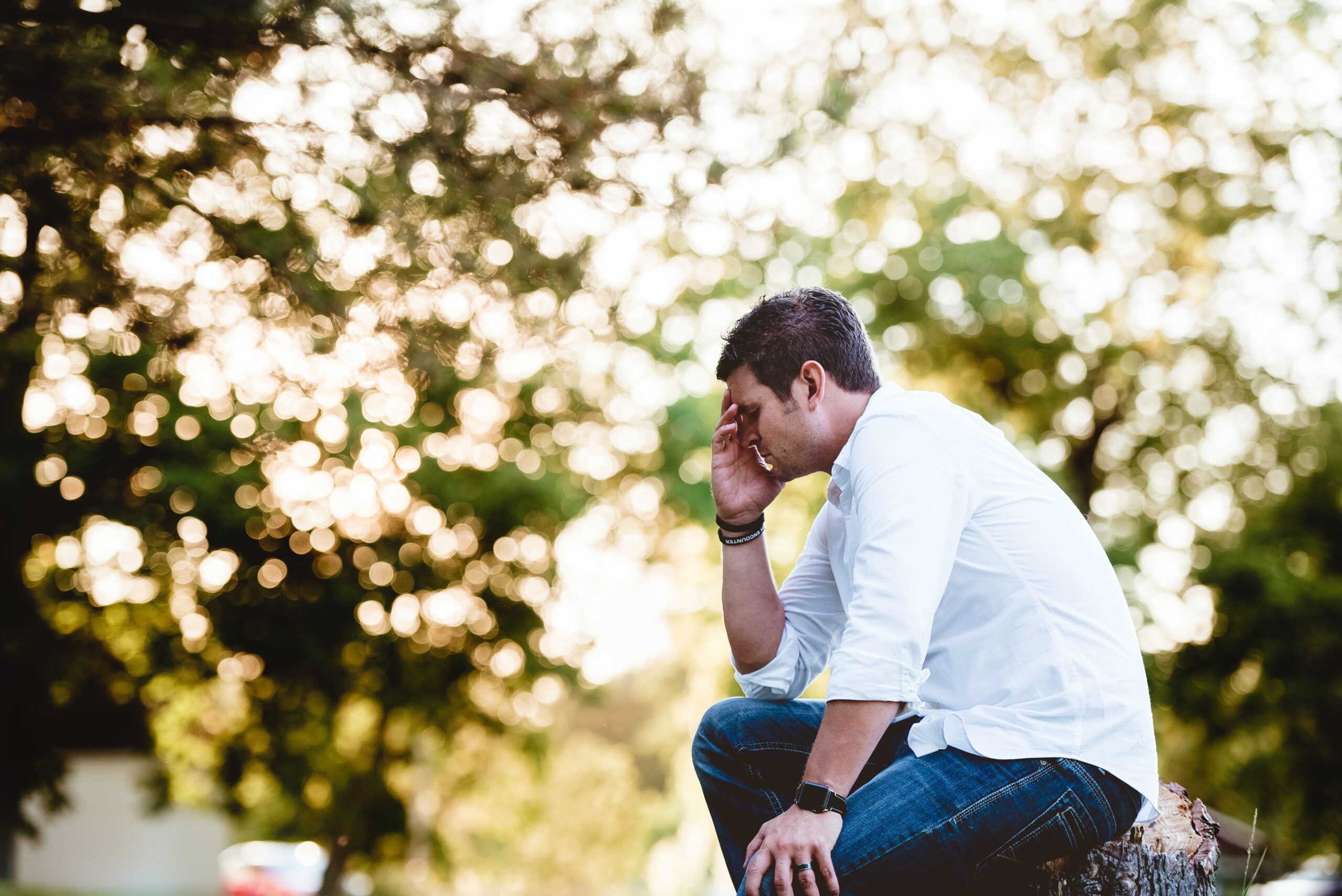When it strikes, anxiety tends to fire on all cylinders. Anxiety uncontrolled can be an all-consuming force that makes you feel nervous about everything under the sun.
Uncontrolled anxiety affects mental health and “mental health problems [are] one of the main causes of the overall disease burden worldwide.”*
Those who suffer from any type of chronic illness most likely know what it’s like to have anxiety. In some cases, they may deal with it continuously. Anxiety manifests itself in the fear of the unknown. That is easy to experience when a patient may not know what the future holds for them from day to day.
“Having a physical illness is one of the strongest risk factors for depression.”**
I don’t believe anyone is immune to anxiety. Whether it’s going for that big promotion at work, a moment in a serious relationship, or testing for determination of a chronic illness, at some point or another in our lives we will experience it.
“The burden of disease for depression itself is similar to that for heart disease.”**
I’ve learned through my research that anxiety and depression are commonly lumped together in research because they are often coexistent.
Anxiety can serve as small hurdles that once overcome lead to a balanced, healthy life. If not addressed and counteracted upon, it can manifest into a life-altering condition. The way to counteract anxiety is by taking action! Try to turn the unknown into the known!
It has been noted that “the onset of anxiety often precedes migraine, with the risk of depression increasing subsequently.”***
“Chronic daily headache has [also] been associated with higher levels of anxiety and depressive disorders than has episodic migraine.”***
In a webinar, “Become friends with your anxiety,” from McLean Hospital, Lisa W. Coyne, PhD sheds more clarity on the topic.
“All of us have anxiety and in fact we need it,” Coyne said.
“Anxiety is an experience that we have that lets us know there is a threat in [our] environment.” She explained that there are three aspects to anxiety: physical reaction, emotional response, and cognitive response.
“It’s really counterproductive to try and avoid [anxiety],” she continued. Becoming ‘friends,’ so to speak, with your anxiety is helpful “because you don’t want to be in that cage.”
How do fear and anxiety link? “Anxiety can generalize [into] many different things,” said Coyne. If we constantly run from anxiety and other triggered emotions/responses, “what happens is we deprive ourselves of learning that actually we can handle the situation. “Your comfort zone expands, it doesn’t contract.”
Evidently we need to embody anxiety. The biggest takeaway from McLean Hospital’s webinar for me was that anxiety is “not all of you” (not all of your function in life) and the choice is up to each individual to choose how to respond to anxiety.
As you know by this stage in reading The Honest Migraine (THM), mindfulness is an enormous part of my life. So when it comes to anxiety – tapping into the mindfulness realm, feeling how the physical symptoms appear when anxious, yet taking steps forward is empowering and helps melt that anxiety. Time and again, I’ve chosen to walk through fear.
What helps anxiety? As with anything, it’s surely a unique formula for each individual. For me, during stressful times, it’s the compassion and understanding by my family and friends. Without my support system, my struggles would surely be longer in length. Perseverance, compassion from others, and a plan of action are three staples in my beat-the-stress diet. Making a plan of action to combat that anxiety is paramount! You must take action. Not taking action allows anxiety to fester and grow stronger. Taking critical steps to resolve what you are anxious about is what will lead to success.
My initial feelings of fear with migraine turned out to benefit me! I took action! I made new friends, I found great doctors, and it allowed me to create THM, which has been so meaningful to me.
We’ve got a million things feeding into our minds each day – even without leaving the house! We are constantly being influenced. While a majority of those experiences, if you will, don’t shift us into fight or flight mode – I would hazard to say at least a handful of them make us stop, think (maybe overthink), and react.
The American Migraine Foundation states, “About 20% of people with episodic migraine have anxiety, and between 30% and 50% of people with chronic migraine also have anxiety.”
Migraine or not, life is unpredictable. The best analogy I can use is my life is like a rose garden. Some days I get pricked, frustrated, and other days I am smelling the roses, getting lost in the beauty and soaking up the sweet fragrance.
*Source: Vos, T., et al. (2013) Global, regional, and national incidence, prevalence, and years lived with disability for 301 acute and chronic diseases and injuries in 188 countries, 1990–2013: a systematic analysis for the Global Burden of Disease Study. The Lancet. 386 (9995). pp. 743-800.
**Source: Depression, anxiety and their relationship with chronic diseases: a review of the epidemiology, risk and treatment advice, David M. Clarke and Kay C. Currie
***Source: Mood and anxiety disorders in chronic headache, Steven M. Baskin, PhD; Gay L. Lipchik, PhD; Todd A. Smitherman, PhD
Coming next: Histamine Intolerance (HIT) worth looking in to
Please consider sharing this article with family, friends, neighbors, coworkers. Let’s help each other reach optimal health.
